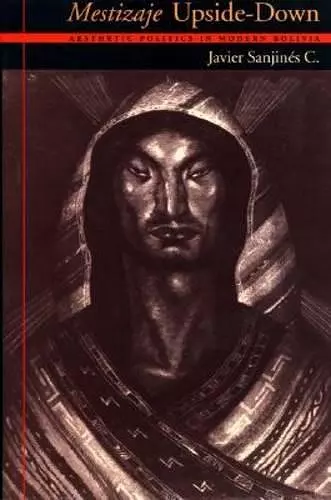Mestizaje Upside-Down
Aesthetic Politics in Modern Bolivia
Format:Hardback
Publisher:University of Pittsburgh Press
Published:30th Apr '04
Should be back in stock very soon

Mestizaje - process of cultural, ethnic, and racial mixing of Spanish and indigenous peoples - has been central to the creation of modern national identity in Bolivia and much of Latin America. Though it originally carried negative connotations, by the early twentieth century it had came to symbolize a national unity that transcended racial divides. Javier Sanjines C. contends that mestizaje, rather than a merging of equals, represents a fundamentally Western perspective that excludes indigenous ways of viewing the world. In this sophisticated study he reveals how modernity in Bolivia has depended on a perception, forged during the colonial era, that local cultures need to be uplifted. Sanjines traces the rise of mestizaje as a defining feature of Bolivian modernism through the political struggles and upheavals of the twentieth century. He then turns this concept upside-down by revealing how the dominant discussion of mestizaje has been resisted and transformed by indigenous thinkers and activists. Rather than focusing solely on political events, Sanjines grounds his argument in an examination of fiction, political essays, journalism, and visual art, offering a unique and masterful overview of Bolivian culture, identity, and politics.
Analyzes the presentation of mestizaje in the sociohistorical, political, and aesthetic traditions of twentieth-century Bollvia.... Especially innovative because it addresses the distinctive work of essayists, painters, journalists, and political figures.... A major contribution. - Marcia Stephenson, Purdue University
ISBN: 9780822942276
Dimensions: unknown
Weight: unknown
240 pages